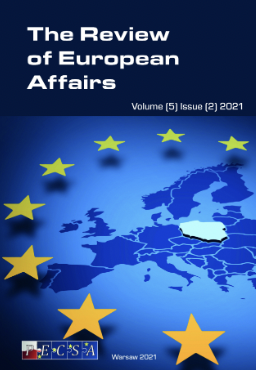Extended European Security Complex and the South Caucasus: the US policy approaches
Extended European Security Complex and the South Caucasus: the US policy approaches
Author(s): Tigran YepremyanSubject(s): EU-Approach / EU-Accession / EU-Development, Geopolitics
Published by: Polskie Stowarzyszenie Badań Wspólnoty Europejskiej PECSA
Keywords: European Security Complex; United States; South Caucasus; Russia; EU; geopolitics;
Summary/Abstract: This paper analyses the US’s strategic interests and policy approaches towards the South Caucasus vis-a-vis competing geopolitical paradigms. It concerns the security challenges for the region, which arise from contradictions between integration, disintegration, and sovereignty in the shared neighbourhood of the European Union (EU) and Eurasian Economic Union (EAEU). The geopolitical, geo-economic and security interests of the United States, Russia, the European Union, Turkey, and Iran are all engaged in the South Caucasus, here is where their security interests intersect. The paper utilizes the Regional Security Complex Theory. From this perspective, the strategic fulcrum of regional security lies in the regions and powers. Therefore, the South Caucasus has an ever-increasing importance for the US interests both as a gateway to Eurasia and as the eastern edge of Europe. Thus, within the context of the largest competing alternatives of the geopolitics and geo-economics of the EU, the Russia-led EAEU, China’s Belt and Road and India’s North-South Corridor – the South Caucasus, an integral of European super-complex, appears as an insulator and corridor between the West and the East, the North and the South. Hence, the US policies have been aimed at making the South Caucasus an eastern extension of the enlarged European regional security complex.
Journal: Review of European Affairs
- Issue Year: 5/2021
- Issue No: 2
- Page Range: 5-17
- Page Count: 13
- Language: English

